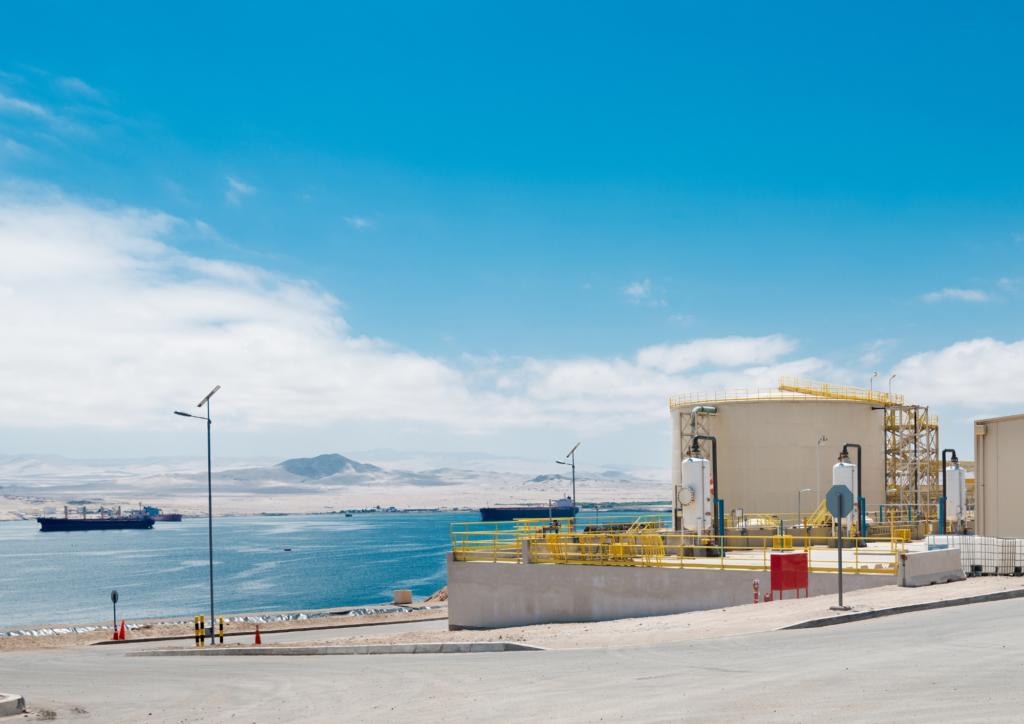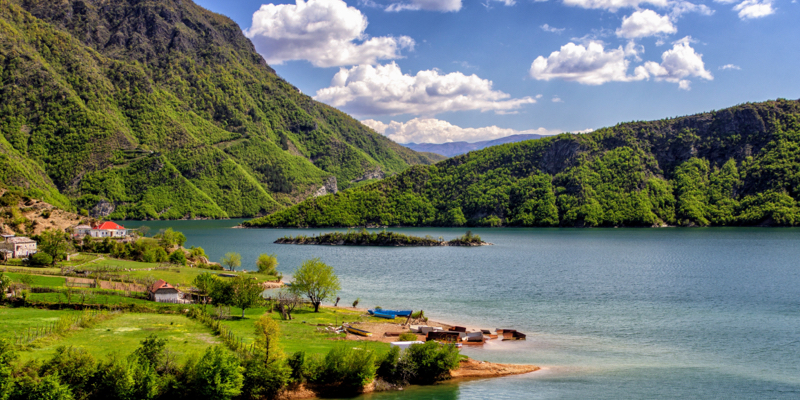- Sector : Sustainable Agriculture
- Location : Mexico

Overview
The Subnational Climate Fund (SCF) is providing technical assistance to a project in Mexico that aims at addressing water scarcity and enhancing food security through the development of a solar thermal desalination and hydroponic facility in Mexico.
The proposed facility leverages seawater and solar energy—two abundant resources in Mexico’s coastal arid zones—to produce fresh water for agricultural irrigation in a zero-waste, circular production model. By utilizing advanced desalination and hydroponic technologies, the project seeks to provide a sustainable solution to the environmental challenges faced by Mexico’s agricultural sector, including the over-extraction of groundwater and the escalating impacts of climate change. This approach not only aims to ensure a reliable water supply for crop production but also to minimize resource use and emissions compared to traditional agricultural practices.
Moreover, the project aligns with Mexico’s National Water Program (PNH) 2024-2030, which emphasizes improving water use efficiency, enhancing water availability for agriculture, and ensuring sustainable management of water resources. It also supports the objectives of the National Climate Change Strategy by promoting climate-resilient agricultural practices and reducing the vulnerability of rural communities to water scarcity.
Through this initiative, this project has the potential to make a significant contribution to the resilience and sustainability of Mexico’s agricultural sector, ensuring compliance with international best practices and regulatory standards.
The Challenge
Mexico’s agricultural sector is grappling with an increasingly severe water crisis, driven by a combination of climate change and unsustainable groundwater extraction practices.
Rising temperatures and shifting precipitation patterns have exacerbated drought conditions, significantly reducing the availability of freshwater resources essential for irrigation and crop production. At the same time, excessive withdrawal of groundwater, often exceeding natural recharge rates, has led to the depletion of aquifers, land subsidence, and increased salinity in the soil.
In addition to water scarcity, the sector faces different sets of environmental challenges, including, soil degradation, salinization, and wastewater pollution from agricultural runoffs. These challenges jeopardize food security and the livelihoods of those who depend on farming.
Addressing this crisis requires urgent and sustainable water management solutions that can adapt to the evolving climate realities.
SCF’s Involvement – Technical Assistance
SCF Technical Assistance has commissioned a pre-feasibility study to support the development of this project, focusing on:
- Assessing the quality of seawater and identifying potential contaminants to ensure safe and efficient desalination processes
- Evaluating the environmental impact of constructing and operating a hydroponic and desalination facility, with an emphasis on protecting local ecosystems and complying with regulatory standards
This study will provide a further understanding of the environmental, social, and economic benefits of scaling up in Mexico and support the project’s growth in alignment with global sustainability goals.
Our Target Impact
The solar thermal-powered greenhouse facility has the potential to deliver significant environmental, social and economic benefits, aligning with the following UN Sustainable Development Goals (SDGs):
-

SDG 13 Climate Action
Traditional desalination and greenhouse agriculture are energy-intensive, contributing 12% of the total GHG in the country. This project mitigates such impacts by employing a solar-powered thermal desalination system and utilizing seawater intake to regulate greenhouse climates, thereby reducing greenhouse gas emissions.
-

SDG 8 Decent Work and Economic Growth
Water shortages lead to shorter cultivation cycles and reduced production capacity, causing many farms to struggle or cease operations. This project offers a sustainable farming solution through a climate-smart agriculture cooperative, potentially revitalizing local agriculture and benefiting from cost reductions and efficiency gains through replication and economies of scale.
-

SDG 5 Gender Equality
The project aims to promote gender equality through inclusive hiring and training practices, ensuring equal opportunities for women in technical, agricultural, and managerial roles. Currently, women make up 49% of their administrative staff and 30% of operations workforce among the project developer partners. In addition, 30% of the Board Members are women.
-

SDG 6 Clean Water and Sanitation
The project uses solar-powered desalination to produce 1,000 m³ of clean water per day for irrigation, reducing dependence on groundwater and promoting efficient water use.


